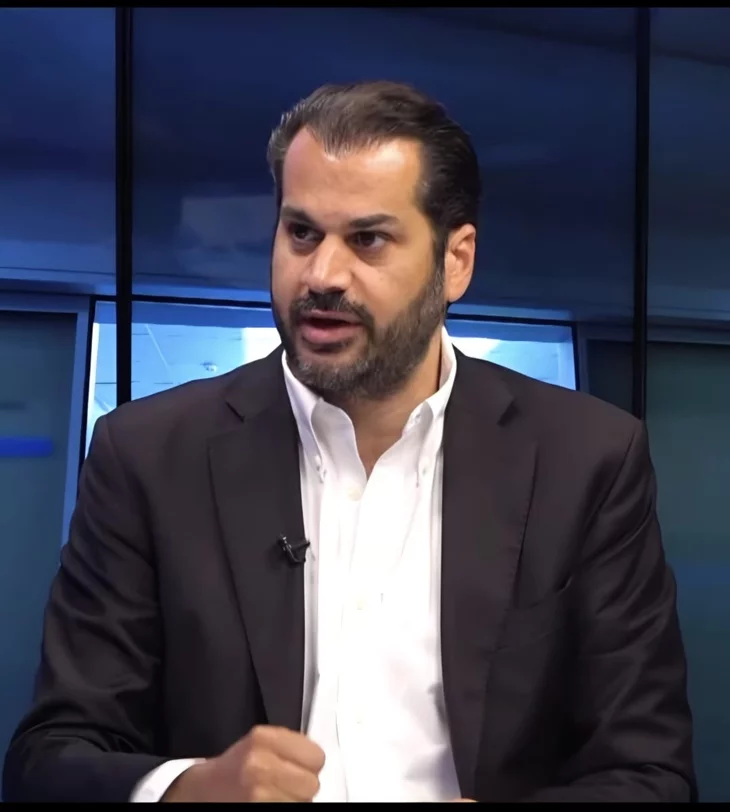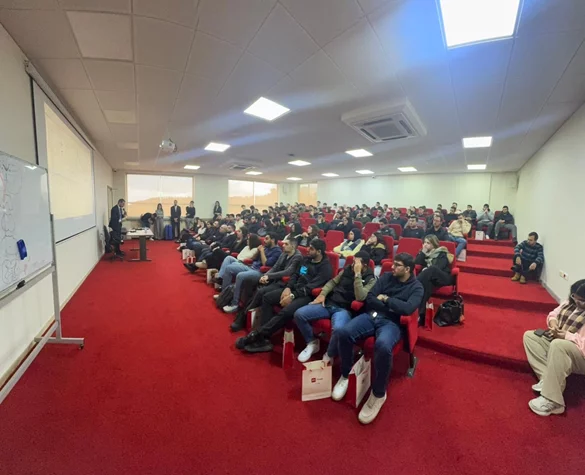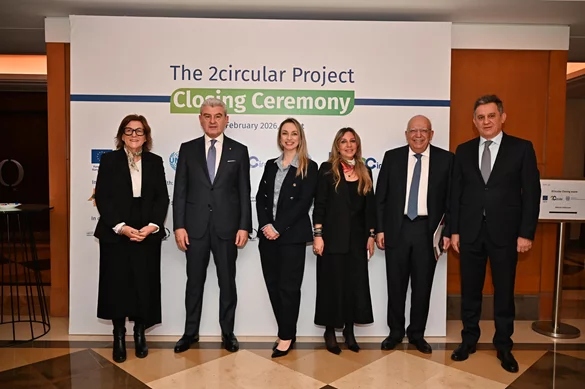In a deeply challenging era for Lebanon’s healthcare landscape, Mr. Joseph “Joe” Ghorayeb, President of the Lebanese Pharmaceutical Importers & Wholesalers Association (LPIA), stands at the forefront of the nation’s medicine-supply resilience. With the collapse of the banking sector, currency volatility, and regulatory uncertainty, Mr. Ghorayeb leads a network that supplies the vast majority of life-saving drugs in the country. His steady voice provides not only reassurance to patients - confirming several months’ worth of medicine stockpiles remain - but also insight into the structural reforms needed to stabilize and future-proof Lebanon’s pharmaceutical supply chain. In this interview, he offers his candid perspective on importation challenges, quality assurance, and the collective responsibility needed to safeguard patient health in these turbulent times.
1. Sector Snapshot – How would you describe the current state of the pharmaceutical sector in Lebanon today?
The pharmaceutical sector in Lebanon is navigating one of its most complex chapters. Despite the macroeconomic instability and regulatory bottlenecks, the sector has shown remarkable resilience thanks to the commitment of licensed importers and their long-standing partnerships with global manufacturers. However, we’re operating in an environment where the official system and the informal market often collide, leading to challenges in ensuring continuity of supply and price stability. The private sector continues to play a central role in sustaining access to life-saving medicines while the government and thirdparty payers face fiscal and structural constraints. There’s been progress in strengthening import mechanisms and quality controls, yet the erosion of purchasing power and delayed reimbursements remain major concerns. The priority today is to preserve trust between regulators, distributors, and patients, as we work to stabilize a sector that remains indispensable to public health.
2. Importation Challenges – What are the main difficulties companies face when importing medicines into Lebanon?
Importing medicines into Lebanon has become increasingly difficult due to the convergence of financial, regulatory, and logistical constraints. The banking crisis has crippled the ability to transfer payments abroad, while potential currency volatility makes pricing and forecasting extremely complex in addition to an essential element, which is the fact that the default of the government vi’s a. Vi’s manufacturer impacted the commercial conditions under which we operate. This coupled to lack of access to financing puts substantial pressure on our cash flow to ensure payment for the medecines l.
Moreover, the administrative process for product registration and customs clearance remains slow, exposing importers to unnecessary delays and demurrage costs. The absence of a predictable reimbursement framework further limits planning visibility for companies dealing with long lead times and strict cold-chain requirements. At the same time, parallel importation and illicit trade have distorted the market, making it difficult for legitimate suppliers to compete fairly. In short, the system needs urgent modernization — from transparent pricing mechanisms to digitalized import tracking — to ensure a sustainable flow of high-quality medicines.
3. Guaranteeing Quality – What measures are in place to ensure that medicines reaching Lebanese patients meet international standards of safety and quality?
Licensed importers in Lebanon operate under rigorous international Good Distribution Practices (GDP) and are routinely audited by both local authorities and their global partners. Every product entering the country follows a controlled chain of custody, from manufacturer shipment to temperature-monitored storage and delivery to pharmacies. Many importers have invested heavily in modern warehouses with humidity and temperature regulation systems that meet European standards. In addition, batch traceability and product serialization are increasingly being implemented to safeguard against diversion or substitution. The Ministry of Public Health also performs quality verification through its inspection units and national laboratory testing. Despite the current challenges, Lebanon’s authorized importers continue to maintain standards equivalent to those in Europe, ensuring that patients receive medicines that are safe, effective, and authentic.
4. Public Risks – Why should people avoid buying medicines through individuals or personal contacts instead of through licensed companies and pharmacies?
When people buy medicines through unregulated channels, they expose themselves to serious risks: from counterfeit products to medicines that were stored improperly and lost their therapeutic value. Only licensed pharmacies and authorized distributors can guarantee that the products have been sourced directly from the manufacturer and handled under appropriate conditions. In contrast, medicines obtained through individuals or online networks are often smuggled, expired, or repackaged to mimic genuine products. These products may contain incorrect dosages or harmful substances that can worsen a patient’s condition. Beyond the health risk, purchasing through unauthorized channels undermines the integrity of the entire supply chain. Trusting official distribution networks is not only safer but it’s an act of responsibility toward public health.
5. Counterfeit Concerns – How serious is the threat of counterfeit or smuggled medicines in Lebanon, and what types are most at risk?
The threat of counterfeit and smuggled medicines in Lebanon is very real and has grown amid the economic crisis. As patients look for cheaper alternatives, criminal networks exploit the opportunity by circulating fake or diverted products through informal channels. The most vulnerable categories are high-value chronic disease drugs, oncology treatments, and lifestyle medicines — areas where demand is high and supply is often limited. Some counterfeiters go as far as copying packaging and lot numbers, making it extremely difficult for the public to distinguish real from fake. Smuggled medicines also bypass temperature control and quality checks, further endangering patients. Combating this requires collaboration between customs, the Ministry of Health, and licensed importers to strengthen traceability systems and enforce stricter border control.
6. Patient Safety – What are the health consequences of consuming counterfeit or improperly stored medicines?
The consequences can range from treatment failure to irreversible harm or death. Counterfeit medicines often contain the wrong active ingredient, incorrect dosages, or toxic contaminants that can trigger allergic or organ reactions. Even when the substance is correct, poor storage conditions — particularly exposure to heat and humidity — can degrade the molecule and render the treatment ineffective. For chronic patients, such as those with diabetes, cardiovascular disease, or cancer, this means losing control of their condition or facing dangerous relapses. Beyond individual harm, counterfeit consumption erodes trust in legitimate health systems. It’s not an abstract issue — it’s a silent public health threat that we must confront with vigilance and accountability.
7. Role of Authorities – What more can regulators and government bodies do to protect the medicine supply chain and support legitimate importers?
Regulators play a pivotal role in safeguarding the integrity of the medicine supply chain. The Ministry of Public Health has made progress in digitization and control, but more can be done to institutionalize these measures and ensure continuity across political cycles. Authorities should enhance collaboration with customs to prevent the entry of unregistered medicines and improve transparency in registration timelines. Strengthening inspection capacity and deploying real-time traceability tools — such as serialized barcodes or QR codes — would help identify and block counterfeit goods before they reach the market. At the same time, public awareness campaigns are needed to educate consumers about the dangers of the informal market. Finally, legitimate importers must be recognized as partners in national health security — not merely as suppliers, but as guardians of public trust.
8. Economic Pressures – How has the financial crisis and currency instability affected medicine availability and affordability?
The financial collapse has severely disrupted the equilibrium between cost, access, and availability. With currency depreciation, importers face constant losses between order placement and payment settlement, while reimbursement delays further squeeze liquidity. Many companies have been forced to prioritize essential medicines and reduce stock levels, resulting in intermittent shortages. Patients, meanwhile, bear the brunt of the crisis through higher out-of-pocket expenses and reduced insurance coverage. The shift to a dollarized market has stabilized availability for some categories but widened inequality in access. Ultimately, without a sustainable national financing mechanism, medicine supply will remain vulnerable to currency shocks and policy inconsistency.
9. Local Production – Do you see opportunities for Lebanon to expand local pharmaceutical manufacturing and reduce dependency on imports?
There is potential for Lebanon to grow its local manufacturing base, but it requires a pragmatic approach rather than a political slogan. The country can focus on specific therapeutic areas, such as generics and essential medicines, where scale and quality can be achieved cost-effectively. However, local production cannot replace imports for complex biologics or innovative treatments that require advanced technology and regulatory alignment with global standards. The key lies in hybrid models, partnerships between multinational firms and local players, supported by a clear industrial policy and predictable pricing. Lebanon’s scientific talent and diaspora expertise offer strong foundations if the right incentives and infrastructure are in place. Done right, local production can complement importation and strengthen resilience, not compete with it.
10. Final Message – What advice or reassurance would you give Lebanese patients today when it comes to trusting the medicine they consume?
My message to Lebanese patients is simple: your health depends on the choices you make about where you buy your medicines. Always seek your treatments from licensed pharmacies and ensure that the product carries the official import label of a registered distributor. Behind that label is a network of professionals working tirelessly to guarantee safety, authenticity, and efficacy. Despite all the challenges the country faces, legitimate importers remain committed to protecting access to genuine medicines. I want people to know that there are mechanisms, partnerships, and dedicated teams ensuring that Lebanon continues to receive the same quality medicines available in any developed market. Trust in the system, and in those who have dedicated their lives to preserving it, is the best safeguard for your well-being.
















.webp)








